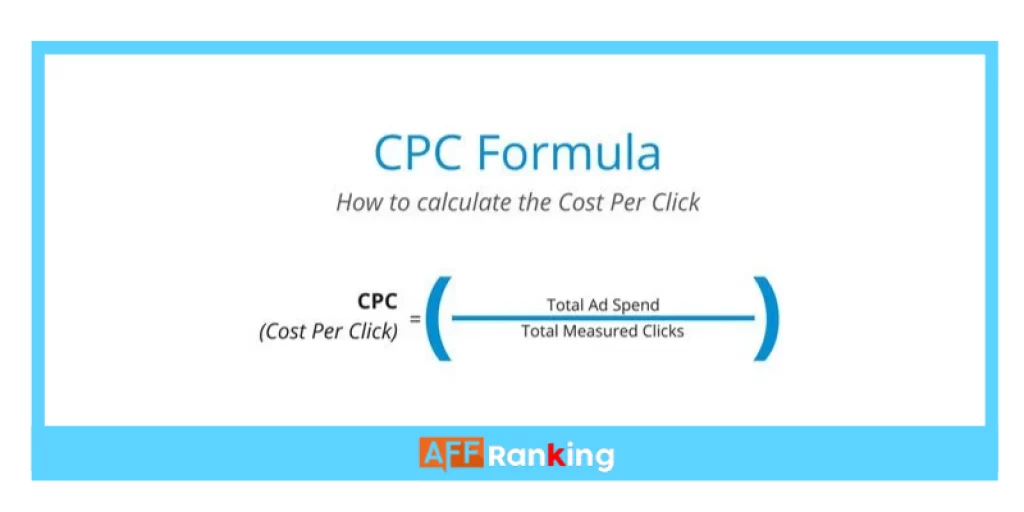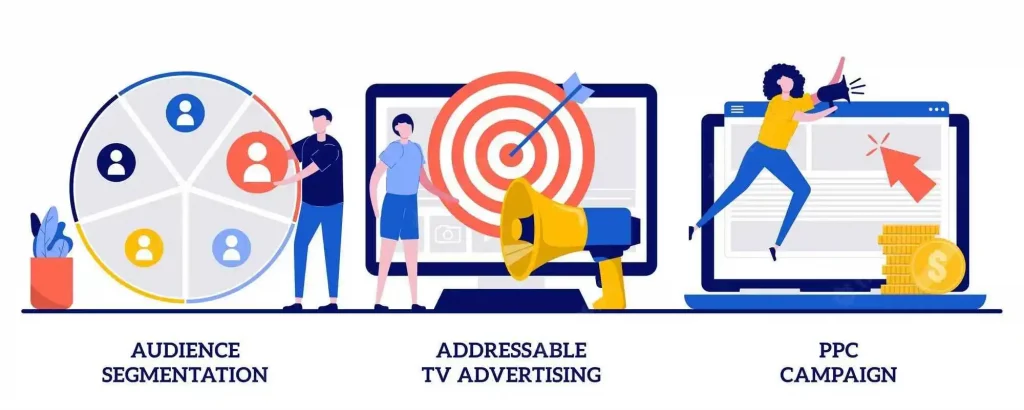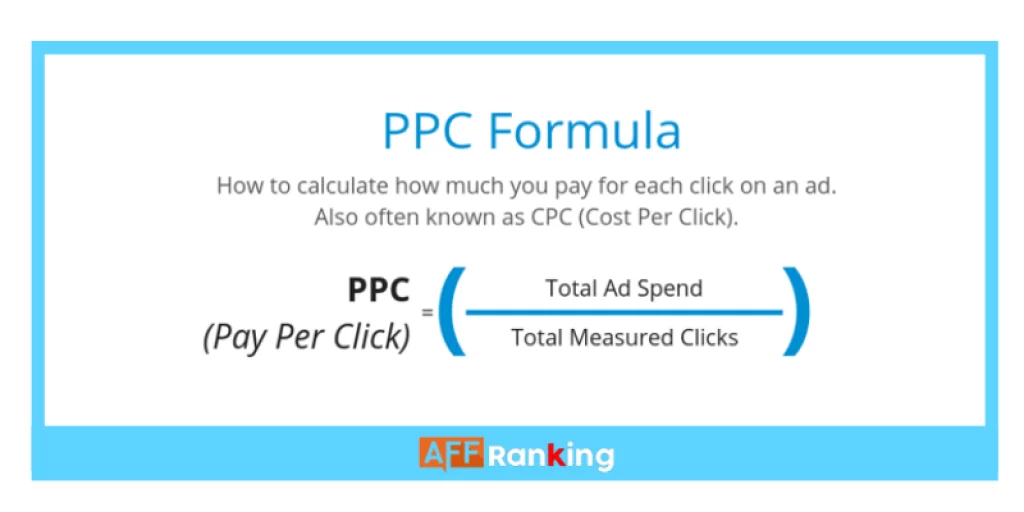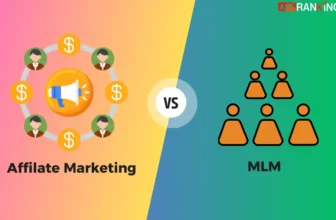As a marketer or someone who is indulged in related online marketing operations, being confused around the terms CPC and PPC is very common, well sometimes intermediate-level marketers can be confused around these simple terms. In this article, we’ll be clearing what's the difference between CPC and PPC.
CPC Vs PPC | The Common Misconception
Beginner-level Marketers usually tend to be confused around these terms, CPC Vs PPC can be compared based on the approach/strategy basis. The PPC stands for Pay Per Click which is a marketing approach, whereas the CPC stands for Cost Per Click which is more of a parameter that is included in PPC.
Using PPC, or pay-per-click advertising is an important part of your marketing strategy that, when executed properly, can increase the volume of leads at the top of the funnel. By boosting your company's overall exposure, PPC advertisements allow you to reach a bigger, more diverse audience. PPC advertising enables your business to appear in Google's search results in response to the terms and phrases consumers are seeking. You pay for an ad only when someone clicks on it (hence ‘pay-per-click'), search engines are incentivized to present it to the most relevant consumers.
Whereas if you look into the CPC part, CPC is the cost of a PPC advertisement click, often referred to as cost per click. An ad click is a visit to your site or interaction with your product or service. CPC is the metric that quantifies the cost per ad click of your entire ad campaign. It measures the total cost per click.
In simple words, it can be said that the PPC is the bigger picture of which CPC is a part of or an essential metric for PPC.
Now that we have got an overview of what PPC and CPC are, let’s get started with a more deeper analysis so that, as a marketer, you can work accordingly.
Are CPC and PPC the same?
Both CPC and PPC are somewhat similar from the marketing perspective, the PPC is more of a strategy whereas the CPC stands for Cost per Click and is a metric that can be used to understand how your PPC campaigns are performing.
In simple words, PPC is a pricing model in online marketing, whereas the CPC is a metric that is used to measure the cost associated with a single click on an ad. In addition to all this, PPC is a model where advertisers pay certain fees each time someone clicks on the ad, whereas the CPC is used to measure the overall cost per click on your entire ad campaign.
What is CPC?
The cost per click (CPC) metric is something that many digital marketers find intimidating. It’s a relatively advanced digital marketing metric, and its meaning can be ambiguous to those who are just getting started with paid advertising on social media or search engines. The good news is that once you understand the meaning of CPC, it’s a metric that is much easier to grasp. CPC refers to the amount that an advertiser will be charged for every user who clicks on their advertisement.
In other words, it’s the cost per click of an advertisement. The tricky part is understanding how this differs from other cost-per-xxx metrics. Read on to learn more about what CPC means for your social media or search engine marketing strategy.
Understanding CPC Basics
The first thing you need to understand is that there is a huge difference between max CPC and average CPC.
- Max CPC refers to the maximum amount that you are willing to pay for each click. This amount is typically set manually.
- Avg CPC refers to the average amount that you are actually paying per click. This metric is calculated based on the number of clicks that you have received so far. The difference between max CPC and avg CPC is often significant.
For example, let’s say that you select a max CPC of $1 per click. On your first day of online advertising, you receive 100 clicks that cost you $100. Your avg CPC is then $1.
However, on your second day of advertising, you receive 1000 clicks that cost you $1000. Your max CPC has not changed, but your avg CPC is now $10.
How to Calculate CPC?

You can calculate your CPC using the following equation: Ad Cost / Clicks / 1000 Ad cost refers to the total amount that you have spent on your advertising campaign so far. It includes the amount you have spent on your ads, as well as any other campaign-related expenses (more on this below). Clicks refer to the total number of clicks that your ad has received so far.
The Importance of Knowing your CPC
The first important thing you need to understand about CPC is that it’s not the amount that you will pay for your ad. In fact, the amount you will pay for your ad will likely be much more. If your ad has a CPC of $1, it does not mean that you will pay $1 for every click on your ad. SSPs have a variety of revenue models, and CPC is just one of them. However, in most cases, it is the most common model.
The main reason to understand your CPC is so that you can set appropriate expectations. For example, if you set a max CPC of $1, but your avg CPC is $2, you will be spending much more on average than $1 per click.
What Determines CPC?
CPC is determined by a variety of factors, but the most important ones are relevance and bid. The relevance of your ad is calculated based on the targeting of your ad. CPC is set at the campaign level. As such, each ad in the same campaign will have the same CPC. CPC is directly correlated to the bid. The higher your bid, the higher your CPC will be. This is because your bid is essentially the maximum amount that you are willing to pay for each click. High-quality ad copy, targeting, and landing pages all help to lower your CPC.
Should you Care about CPC?
CPC is a critical metric, but it is not the only metric that you need to pay attention to. In fact, your overall cost per acquisition (CPA) is actually a better metric to use. CPA refers to the total amount that you have spent on your ad campaign, including the CPC, as well as other campaign-related expenses such as ad creative, ad placement, and campaign management. CPC is a metric that is best used at the ad level.
It is helpful for understanding the relationship between your bid and your average cost per click. CPA, on the other hand, is a metric that is best used at the campaign level. It is best for understanding the relationship between your CPC and your overall ad spend. Keep these differences in mind as you track and analyze the data from your ad campaigns.
What is PPC and Why is it important?

PPC (or Pay per click) advertising is a type of digital marketing that enables advertisers to directly bid on and pay Google and other search engines to display their ads when users search for specific keywords. This article will help you understand why PPC advertising is successful and how it can be implemented in your marketing strategy. Read on to find out more.
What is PPC Marketing?
PPC marketing, or pay-per-click marketing, is an internet marketing strategy that helps advertisers bring in new customers and grow their business. With PPC marketing, you pay for every click. So how do you profit if you pay for every click? Well, when you set up PPC, you set the maximum amount you are willing to pay per click. You then set the maximum amount you’re willing to pay per conversion. Essentially, you’re covering all your bases. You’re ensuring you’re covering all your bases. You’re ensuring that your ad campaign will be profitable, even if it doesn’t lead to immediate sales.
Why is PPC Marketing Successful?
PPC marketing is so successful because it makes use of the limited attention span that most people have when browsing the internet. When you use PPC marketing, you only have a few seconds to convince someone to click on your ad, visit your page, and make a purchase. If you can’t do that, you’re losing potential profit. If you’re using SEO to promote your business, you could be waiting weeks, or even months, for your content to rank on Google’s first page. PPC marketing, on the other hand, has a far shorter “wait time”. You can expect to see results from PPC as quickly as a few days, or even hours.

How to Implement PPC in your Marketing Strategy
If you want to use PPC, you need to first understand that there are two main types of PPC strategies: There are many ways to implement PPC in your marketing strategy. Here are a few tips: Set a budget. Before diving into PPC, you should set a budget for your campaign. This allows you to create realistic goals for your business. Choose your keywords. Choosing the right keywords for PPC is essential. You want to choose keywords that your target audience is using to search for products and services.
Create a landing page. A landing page is a page that shows when a user clicks on your ad. Your landing page should encourage users to make a purchase or sign up for your email list. Tune your campaign. As you run your PPC campaign, you’ll likely notice that some keywords are more profitable than others.
3 Best Practices for Effective PPC Marketing
There are a few best practices that will help you get the most out of your PPC campaign. Here they are:
- Set realistic budgets: Set realistic budgets. You don’t want to put all your eggs in one basket. Having a budget allows you to adjust your campaign to meet your goals.
- Focus on quality: Focus on quality rather than quantity. Quality ads are more likely to get clicks than ads that have poor grammar or misspelled words. Quality ads also have a higher chance of converting.
- Choose the right targeting: Choose the right targeting to ensure that your ads are being shown to the right audience. This will help your ads be more successful overall.
Final Words: Why focus on PPC in Digital Marketing?
PPC marketing is a cost-effective digital marketing strategy that lets you show ads to customers based on their search terms. When someone clicks on your ad, they are taken to your website or landing page where they can learn more about your product or service and make a purchase. When implemented properly, PPC can help you increase sales revenue by bringing in more customers in less time at a lower cost. With PPC, you only pay when someone clicks on your ad. If no one clicks on your ad, you don’t pay anything.
So, I guess PPC and CPC, both of the terms might be clear by now, both CPC and PPC are pretty important when it comes to marketing.
Hopefully this CPC Vs. PPC article might have cleared some of the common doubts that you might be encountering.







